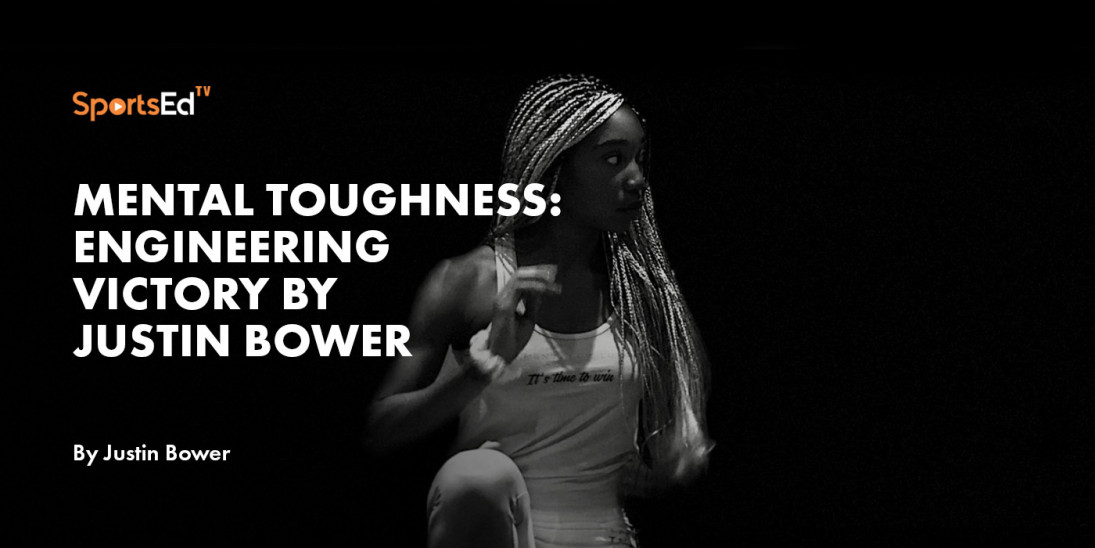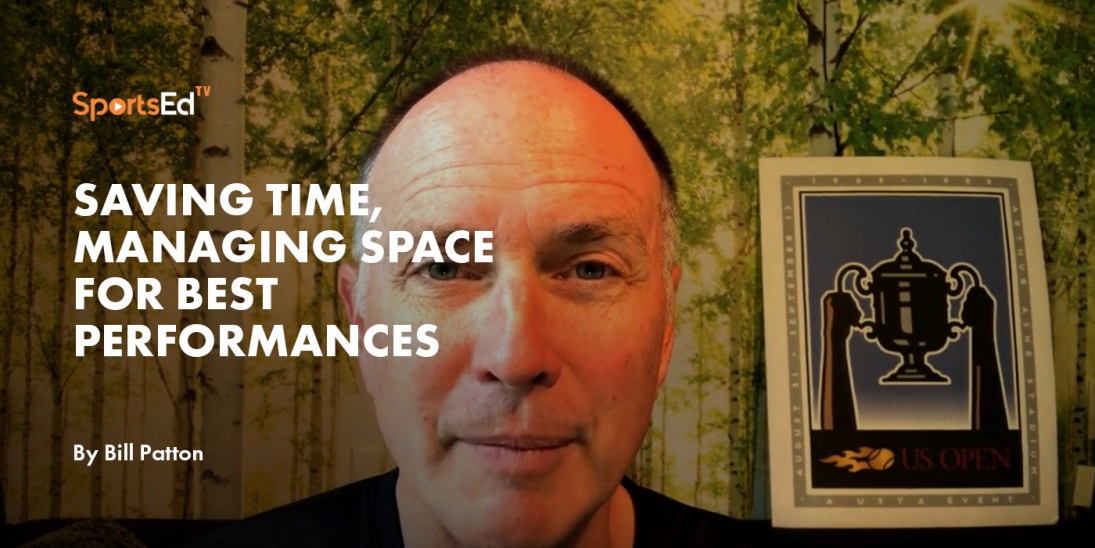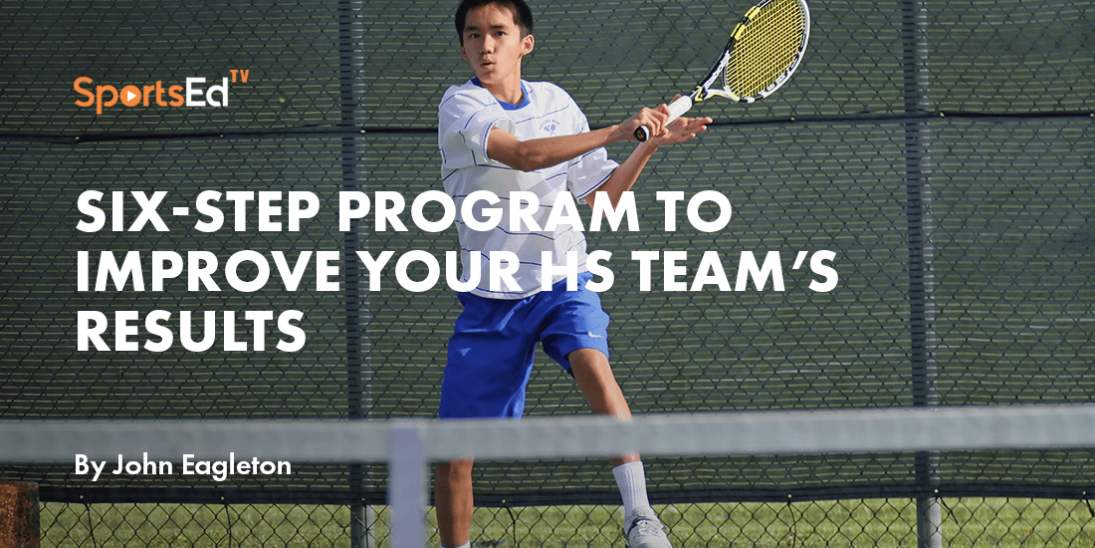Tennis
Welcome and thanks for visiting...

Mental Toughness: Engineering Victory by Justin Bower

When I was asked to write this post, I was given a fairly wide open slate as far as which topic to write about.
Mental toughness is a tremendously fascinating and highly necessary topic. Mastery here carries with it a very high utility: the outright capacity to make some of your boldest and most ambitious ideas come to life.
Perhaps a good starting point is to consider exactly what mental toughness is…
The mental skill set requirements to achieve mental toughness differ across different occupations. For a triathlete, for example, the most important one might be mental endurance, while for a top surgeon it might be immaculate levels of concentration. A teacher might need to score higher in the arena of patience, while the CEO of a major corporation might need a much higher social IQ in order to extract motivation and excellence from such a diverse range of personalities.
We can extrapolate from this that mental toughness is a fluid and evolving concept, but that at its root, it is the cause of: thinking and action that supports your goals.
At the height of your powers, at your toughest, you could say that you have the highest percentage of thoughts and actions that are in your own best interest.
I believe it is not too bold of a statement to claim that this might be one of the more important skill sets to possess: the ability to consistently take actions that support your goals. Mastery here will open up a world of possibilities for outcomes that are tremendously satisfying, as well as usher in new, previously not perceived ideas that propel the next wave of creativity and purposeful action.
- So how do we get there?
- What does the Mentally Tougher version of you look like?
- Feel Like?
- Behave like?
In my first book, Mentally Tough Me, we tackle this question head on. I feel very fortunate that one of the biggest advantages I had as a professional tennis player, was access to some of the brightest minds across several fields, sports psychologists in particular, and their wisdom very directly impacted my results.
The critical starting point is to view your mental skill set as part of an ecosystem. We describe this ecosystem as the 9 cores.
Core 1: Your Overall State. Who are you on a day to day level? What do you generally react to, what level of energy or intensity do you have? How well planned is your day? Are you someone who seeks adversity and challenges, or are you someone who has sunken into the rhythm, of similarity, and is perhaps looking for some new challenges to spice things up? Your perceptions, beliefs, and way you interpret the world around you contribute greatly to which ideas you have and how you process them
Core 2: Action Taking (Or lack thereof). What is it that makes you take action? Do you have a deep source of intrinsic motivation, a vision or goal that is causing you to rocket out of bed? Are you extrinsically motivated, perhaps you do things to make others feel good? Are you consistent? Are you able to finish projects that you start, or are you someone caught in a constant push-pull relationship with your progress-regress chart, but mostly end up treading water?
Core 3: Your Ego and self satisfaction. The ego is a powerful force. It houses both your self image as well as the foundations of your morality. So you think you are good enough, capable of reaching your goal? Worthy? Each person reading this post has varying needs for attention, gratification, accolades, as well as what you believe you deserve. The ego will be a very powerful force once we successfully nurture a self esteem that allows you to believe in yourself, a self image that you strive to protect you possess the humility required to accept the criticism necessary for growth and learning.
Core 4: Thick skin and mental endurance: This set of internal components is what will guide you around, through or over the obstacles that will be present in any test of yourself. Sacrifice, persistence, pain tolerance and the capacity to experience emotional and physical discomfort at what most would consider intolerable levels and yet remain on track. This holy grail of any goal attempt is to: KEEP SHOWING UP UNTIL THE JOB IS DONE!
Core 5: Wisdom. Taking action is going to be a must. But there is an unbending rule that we must become subservient to, and that is that action alone will not get the job done. We need to get smarter. We need to study our field. We need to experience failure and soak in the lessons from those. We need to adapt and grow and become wise. In this section we find your expertise, your ability to understand the implications of as well as moderate risk, leading to fundamentally sound decisions that weigh positively both now and in the future. Your ability to solve problems quickly frees you to finish other tasks and be more productive.
Core 6: People skills. It takes a village to reach a dream:) Attracting the right people into your world and building a great team around yourself will be essential. Leadership, the ability to sense and react to other people's emotions as well as trading in that most valuable currency, the way you make other people feel.
Core 7: Your performer tools. The stage. The center court. The boardroom. The moment when you need to perform. For many, when they speak of mental toughness, they generally are referring to this segment. What they really are after is the ability to win on the big stage. This skill set is anchored in a fairly simple idea: Are you able to produce good enough skills to win in these moments? (Notice how I steered away from using the idea of great tennis? This is because doing enough to get the job done, consistently crossing that finish line is what we are really after)

“What makes a great performer and more importantly, what are the skills that I need to build to become one?"
This is a critical question for any athlete or performer, as their paycheck normally depends on how well they answer it. A simple framework is to assess your capacity to access your skills under pressure? We explore the strength of your self preservation and survival instinct, and how well you respond to emergencies. Do reason and quick thinking win the battle over emotion? Do you have strategies for controlling nerves and self doubt, indecision, and panic? If you can perform a task at an eight out of ten levels in practice, but only at a four out of ten in critical moments, then this would require you to strengthen your performance skill set.
Core 8: Professionalism: Being a pro. Showing up. Meeting deadlines. Developing processes that are industry leading. How you dress, how you speak with your co-workers. You have built and can execute the highest levels of skill in your field. You stay current. You do the continuing education. You build others around you. You are impeccable. You are a pro, my friend.
Core 9: Coping Skills. Can you cope with hunger when trying to diet? Can you cope with the massive hours or the financial requirements of going back to school? One of the hardest parts of learning a new skill set, or mastering a new habit, is overcoming the learning curve of how to cope with it. There are generally two ways we can cope, positively or negatively. Positive coping skills allow you to continue in a healthy way, whilst negative ones might make you quit or cannibalize other areas of the ecosystem. Negative coping skills (I hesitate to use the word skill, although there are many people who are very skillful at talking themselves out of success) are what allow you to cope with the powerful emotions associated with quitting or failing. Rationalizing is a way to make our failure sound plausible. Aim inhibition seeks to tell us we are not good enough, “don't even try.” Intellectualization is a way of avoiding emotion by coming up with really smart reasons for why things happened. These are all, in reality, the mind's way of steering you away from pain, emotional or physical, perceived, or actual.
We all know someone who is like The Little Engine That Could. They just keep plugging along and are not overly bothered by many of the things that would drive the rest of us mere mortals quite mad. They have positive coping skills, the group of skills that allow you to absorb the hardship/boredom/losses and any other form of travail, and arrive at their goal. They tend to be able to say things like “In spite of the hurricane, I still finished the race”
Rituals can be a great way to overcome inertia and get going. Packing your clothes out at night, playing points out in your mind, going over your scouting report. Compensating allows you to substitute something you are not good at for something else, making up for weakness by replacing it with a strength in a different area. Diminishing is a strategy where you take the idea or person off the pedestal and make it seem less daunting.
In the end, we all leave a lot of money and skill on the table in this game we call life, but tethering your ship to finding out just how much of your ability you can tap into, is one of the more profound creative experiences you can enjoy.
Real mental strength is the best gift you can give yourself.





